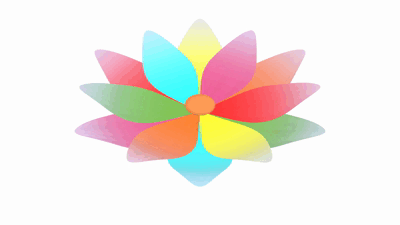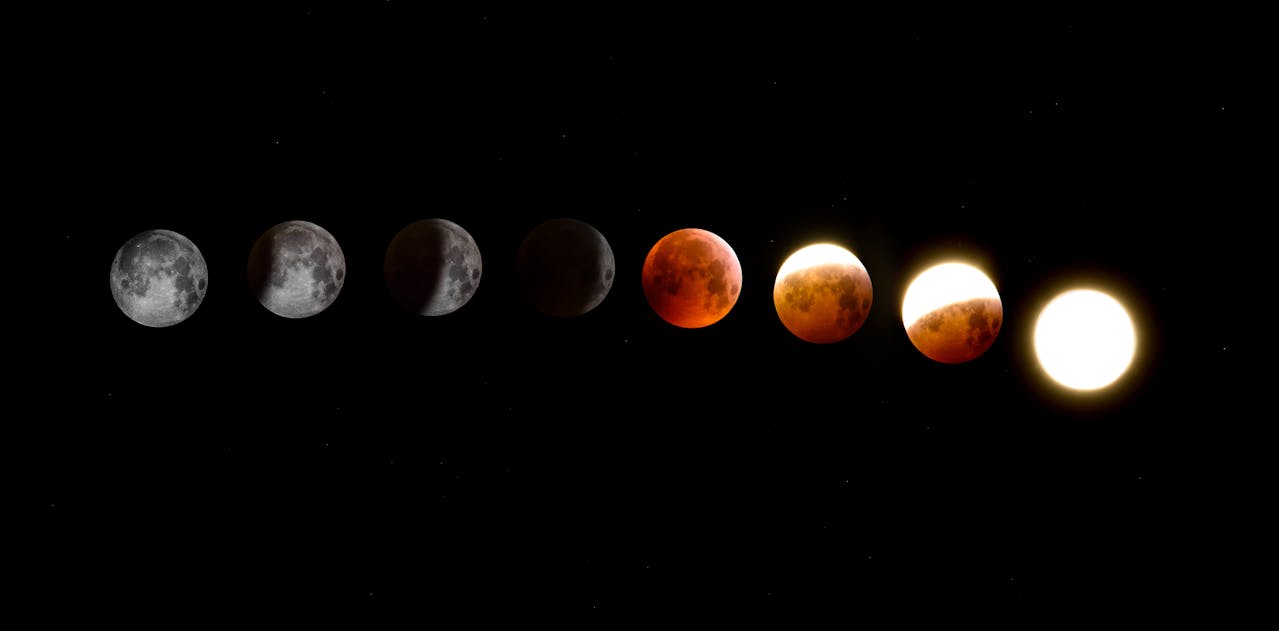The recent lunar blood moon eclipse reminded us of the contrast between darkest night at the peak of the eclipse, followed by the re-emergence of the full moon. Humanity has long had a complex and ambiguous relationship with the dark. Darkness can be synonymous with beauty and meaning in Eastern cultures, and more usually with introspection and transformation in the West.

Photo by Engin Akyurt
In Dante’s Inferno, the Roman poet Virgil guides him through his descent into the nine circles of hell to find the frozen centre of Hell where the fallen archangel Lucifer is bound. Dante’s spiritual journey begins at the gates of hell with the infamous inscription: “Abandon all hope, ye who enter here.” This symbolic journey into the dark night of the soul describes the fear and terror humanity has with the potentially dangerous mysteries of the dark.
Building on Dante’s inspiration, if we consider darkness as a path of transformation, our descent into our inner world to explore our darkness may bring personal growth, if at times, somewhat painful! Some of the world’s geniuses like Ada Lovelace, Marie Curie, Einstein, and Steve Jobs may be intrinsically inspired to transform the world based on their own inner spark. However, as one of my old teachers Rod Stryker describes in his book The Four Desires, most of us don’t change until the pain of not changing exceeds the pain of changing…sadly, most of us are motivated by pain avoidance! The Yoga Sutras, written over 2000 years ago, describes dvesha, aversion towards pain, as one of the five kleshas, the obstacles to inner peace. That which we avoid or resist, may detract from our path to growth, inner transformation.
When we begin to befriend the dark, we encounter what is beneath the surface in our unconscious, what is unknown to our conscious mind. These unconscious experiences may be unfamiliar to our conscious, logical waking minds, and so unknown that we may not even have names for them. Why do names matter I hear you ask? Names have power, and when we can name our darkness, we gain power. Naming brings the unconscious and unknown into the conscious, awakened mind, and into our sphere of conscious control.

Photo by Pixabay
Ancient myths, legends and folklore have long known of the power of true names. Knowing a true name gave you power over the individual. For this reason, Odysseus refused to give his name to his captor, there was a Roman goddess that guarded Rome’s true name, and the true name of God is considered potent, sacred and taboo by both Kabbalists and Sufis. More recently, Puccini’s Turandot had to marry any suitor she couldn’t name!
There are still cultures today where titles are preferred over personal names, even within families! Names are so powerful that there are parts of our brains that are activated as no other words do. Neuroscience has detected that even those in vegetative states respond to their names.
The fairy story of the imp Rumplestiltskin exemplifies the power of names. The downtrodden Queen is forced to bargain with him with her firstborn son for his help in spinning straw into gold, or risk losing her life. The Queen’s faithful servant overhears the imp’s boastful ditty chanting his name. This enables the Queen to exert power over Rumplestiltskin by naming him and saving her son. The imp is rumoured to either disappear forever or to tear himself in two with rage!

Photo by ph.galtr
The power of naming grants the Queen power in multiple ways; she saves her own life and gains power with the King with her ability to spin straw into gold, and defeats Rumplestiltskin to retain her firstborn son. Although we don’t know her name (the stories of the Brothers Grimm were published during the early 19th century!), she remains an inspiring female figure. Let’s name her the Queen of Power for the purposes of this article!
So…what do we discern when we begin to delve into the dark? We may find hidden talents as we lean into our more artistic and creative sides…
Try doodling with pastels or crayons (child-size and clunky helps), with your non-dominant hand and see what happens over the course of a week. This is more likely to invoke the creative right-side of the brain and allows the analytical left-brain to rest. The point is not to create beautiful artwork, although that’s clearly a desirable outcome! The point is to connect with the part of the brain that connects with the unconscious waking/dreaming state.
We may discover dreams and nightmares, rich in symbolism that may require the assistance of a professional dream interpreter or dream therapist to unpack. We may also discover images, symbols and ideas emerging unexpectedly as we travel through our darkness. Exploring these can result in richer connections within our brains and provide links to memories. Visualisation and meditation may be paths that help you to access these states.
And then…there are the places that scare us. The core negative emotions we may encounter include anger, anticipation, disgust, fear, sadness and surprise. For some, even the positive emotions of joy and trust can be tricky. Learning to associate these experiences or feelings with sensations in our body can further help in unlocking our access to the dark. And these core emotions form the basis of more complex emotions such as appreciation, awe, calm, entrancement and love, as well as anxiety, confusion, horror and craving.

Photo by Mariana Montrazi
So here is your invitation to dance with the dark. Our ability to fluently dance with our unconscious may lead us beyond personal transformation into more ecstatic and spiritual states, as experienced by mystics throughout history, from Kabbalists, Gnostics to Sufis. Power over the dark may grant us a force of inner transformation that opens up a deeper bond with the universe or the divine, connecting us with our own spiritual selves. Just remember to dance like no one else is looking – they’re not…they probably can’t see into your unconscious!
Main – Photo by Alex Andrews





